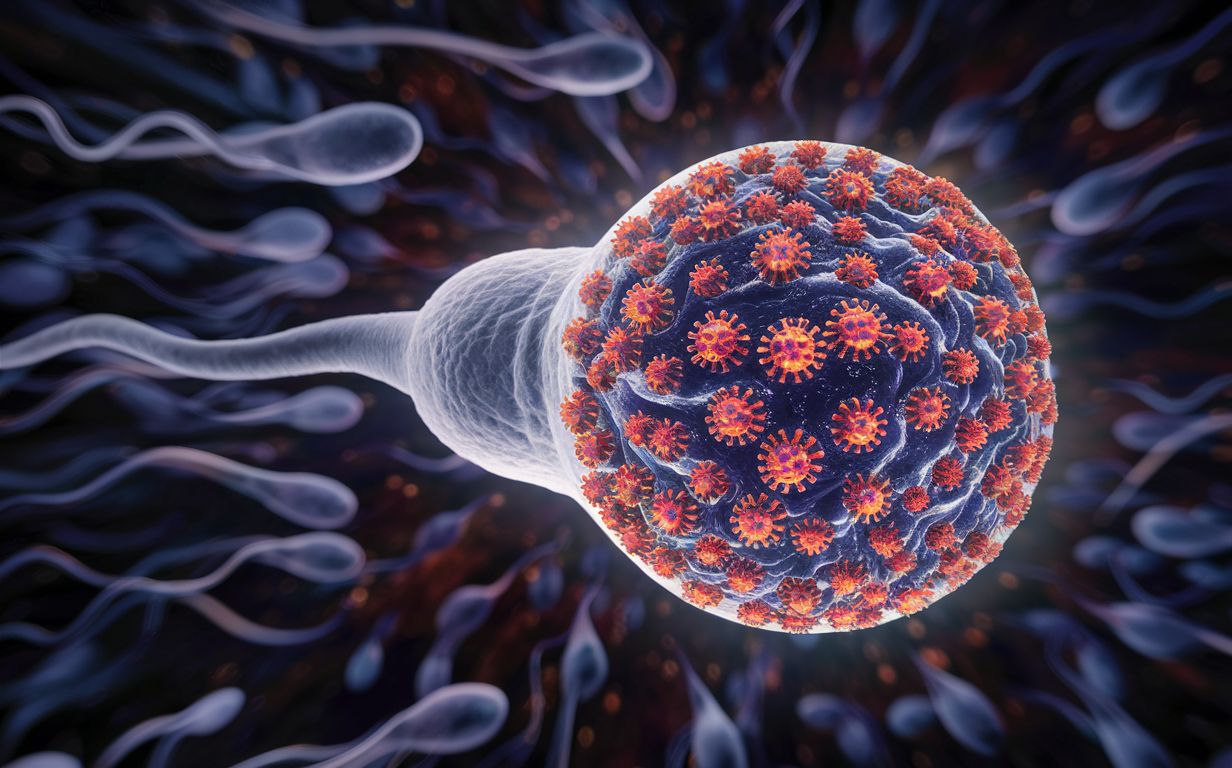Follow us on Google News (click on ☆)

Researchers from the University of São Paulo have discovered that the COVID-19 virus can remain present in the sperm of infected individuals for up to 110 days after infection, thereby impacting sperm quality. This finding highlights the virus's ability to infiltrate and damage the male reproductive system, suggesting a quarantine period for those planning to conceive after recovery.
Sperm samples from 13 patients, aged 21 to 50 years old who had mild to severe forms of COVID-19, were analyzed. Although PCR tests were negative for the virus in the sperm, electron microscopy revealed the presence of SARS-CoV-2 in the sperm of 72.7% of moderate to severe patients.
The study also observed that sperm produce "extracellular traps" composed of nuclear DNA to neutralize the pathogen, a mechanism known as suicidal ETosis response. These traps, similar to those formed by neutrophils in the systemic inflammatory response to SARS-CoV-2, reveal a new immune function for sperm.
The implications for reproductive medicine are significant. Professor Jorge Hallak recommends postponing natural conception and especially assisted reproduction for at least six months after a SARS-CoV-2 infection, even in cases of mild COVID-19. This recommendation is crucial for gamete micromanipulation techniques.
Research continues to assess the long-term effects of SARS-CoV-2 infection on reproductive and sexual health. The team, led by Professor Carlos Carvalho, is currently studying the sequelae of the infection in more than 700 patients as part of a project funded by FAPESP.